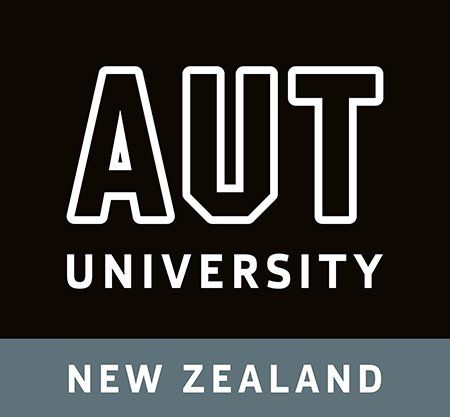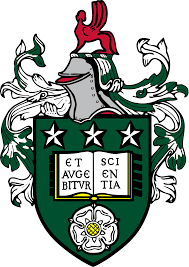
Water Resource Management
Course ID: 2507280101437ESH
Course Dates : 28/07/25 Course Duration : 5 Studying Day/s Course Location: London, UK
Language: Bilingual
Course Category: Professional and CPD Training Programs
Course Subcategories: Leadership and Management Excellence
Course Certified By: ESHub CPD & LondonUni - Executive Management Training
* Professional Training and CPD Programs
Leading to:
Executive Diploma Certificate
Leading to:
Executive Mini Masters Certificate
Leading to
Executive Masters Certificate
Certification Will Be Issued From :
From London, United Kingdom
Course Fees: £5,120.30
Vat Not Included in the price. VAT may vary depending on the country where the course or workshop is held.
Click to Pay
Date has passed please contact us Sales@e-s-hub.com
Course Information
Introduction
Water is the lifeblood of ecosystems, economies, and societies. Its sustainable management is critical to addressing global challenges such as climate change, population growth, and urbanization. As industries and communities increasingly face water scarcity, pollution, and inefficient allocation, the need for expertise in water resource management has never been more pressing. This course delves into the principles, tools, and strategies required to ensure the equitable and sustainable use of water resources. It is designed for professionals who seek to deepen their understanding of hydrological systems, policy frameworks, and innovative technologies that underpin effective water governance.
The global water crisis is not a distant threat but a present reality. According to the United Nations, over two billion people live in countries experiencing high water stress, while 700 million could be displaced by 2030 due to water scarcity. These statistics underscore the urgency of adopting integrated approaches to water management. However, gaps in knowledge and practice persist. For instance, many organizations lack the capacity to implement adaptive water management strategies or integrate emerging technologies like remote sensing and AI-driven analytics. This course bridges these gaps by equipping participants with the skills to navigate complex water-related challenges and contribute to resilient water systems.
A notable case study is the Murray-Darling Basin in Australia, where decades of mismanagement led to ecological degradation and economic losses. The subsequent adoption of integrated water resource management (IWRM) principles helped restore balance, demonstrating the transformative potential of informed decision-making. By examining such examples, this course emphasizes the importance of interdisciplinary collaboration, stakeholder engagement, and evidence-based practices. Participants will explore frameworks like the Water-Energy-Food Nexus and the Sustainable Development Goals (SDGs), which provide blueprints for holistic water management.
For individuals, mastering water resource management offers a competitive edge in an evolving job market. Professionals equipped with these skills are better positioned to lead projects, influence policy, and drive innovation within their organizations. Organizations, in turn, benefit from enhanced operational efficiency, regulatory compliance, and corporate social responsibility. For example, companies in the agricultural sector can optimize irrigation systems to conserve water, while municipalities can design flood-resilient infrastructure to protect communities.
The course also addresses emerging trends, such as green infrastructure, circular water economies, and digital twins for water systems. These innovations are reshaping how water is managed across sectors, from manufacturing to urban planning. By staying abreast of these developments, participants will be able to anticipate future challenges and seize opportunities for sustainable growth.
Ultimately, this course is more than a professional development program—it is a call to action. By empowering participants with the knowledge and tools to manage water resources responsibly, it contributes to a broader vision of environmental stewardship and social equity. Whether you are a policymaker shaping national strategies or an engineer designing water treatment plants, this course will equip you to make meaningful contributions to a water-secure future.
Objectives
By attending this course, participants will be able to:
Analyze the hydrological cycle and its implications for water availability and quality in diverse contexts.
Evaluate the effectiveness of existing water policies and propose evidence-based improvements.
Design integrated water resource management plans that balance ecological, economic, and social priorities.
Implement advanced technologies, such as GIS and remote sensing, to monitor and manage water resources.
Apply risk assessment methodologies to identify and mitigate water-related hazards, including floods and droughts.
Synthesize insights from case studies to develop context-specific solutions for water scarcity and pollution.
Assess the role of international frameworks, such as the SDGs and the Paris Agreement, in shaping water governance.
Who Should Attend?
This course is ideal for:
Environmental engineers and scientists seeking to enhance their technical expertise in water management.
Policymakers and government officials responsible for developing and implementing water-related regulations.
Urban planners and architects designing sustainable cities and infrastructure.
Corporate sustainability managers aiming to align organizational practices with environmental goals.
Non-profit leaders and consultants working on water conservation and community resilience projects.
This course is particularly valuable for intermediate learners who already possess foundational knowledge of environmental science or engineering but wish to deepen their understanding of water resource management. While prior experience is beneficial, beginners with a strong interest in the subject are also encouraged to attend, as the course begins with fundamental principles before progressing to advanced applications.
Training Method
• Pre-assessment
• Live group instruction
• Use of real-world examples, case studies and exercises
• Interactive participation and discussion
• Power point presentation, LCD and flip chart
• Group activities and tests
• Each participant receives a 7” Tablet containing a copy of the presentation, slides and handouts
• Post-assessment
Program Support
This program is supported by:
* Interactive discussions
* Role-play
* Case studies and highlight the techniques available to the participants.
Daily Agenda
Daily Schedule (Monday to Friday)
- 09:00 AM – 10:30 AM Technical Session 1
- 10:30 AM – 12:00 PM Technical Session 2
- 12:00 PM – 01:00 PM Technical Session 3
- 01:00 PM – 02:00 PM Lunch Break (If Applicable)
- Participants are expected to engage in guided self-study, reading, or personal reflection on the day’s content. This contributes toward the CPD accreditation and deepens conceptual understanding.
- 02:00 PM – 04:00 PM Self-Study & Reflection
Please Note:
- All training sessions are conducted from Monday to Friday, following the standard working week observed in the United Kingdom and European Union. Saturday and Sunday are official weekends and are not counted as part of the course duration.
- Coffee and refreshments are available on a floating basis throughout the morning. Participants may help themselves at their convenience to ensure an uninterrupted learning experience Provided if applicable and subject to course delivery arrangements.
- Lunch Provided if applicable and subject to course delivery arrangements.
Course Outlines
Fundamentals of Water Resource Management
Introduction to the hydrological cycle and water systems.
Key drivers of water scarcity and pollution.
Overview of integrated water resource management (IWRM).
Role of stakeholders in collaborative water governance.
Day 2:
Policy and Regulatory Frameworks
Analysis of national and international water policies.
Compliance requirements for water management projects.
Case study: Successes and failures of water governance.
Emerging trends in water law and regulation.
Day 3:
Technologies for Water Monitoring and Management
Applications of GIS and remote sensing in water resource mapping.
Use of AI and machine learning for predictive modeling.
Innovations in water treatment and recycling technologies.
Hands-on workshop: Building a digital twin for a water system.
Day 4:
Risk Assessment and Mitigation Strategies
Identifying and prioritizing water-related risks.
Flood and drought management strategies.
Climate adaptation measures for water systems.
Developing emergency response plans for water crises.
Day 5:
Sustainability and Future Directions
Principles of the circular water economy.
Green infrastructure for urban water management.
Aligning water management with the SDGs.
Group project presentations and feedback session.



















































